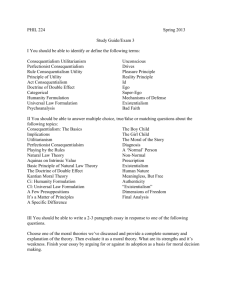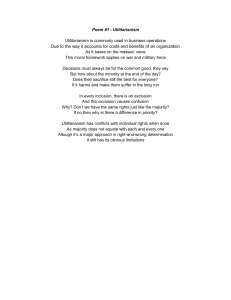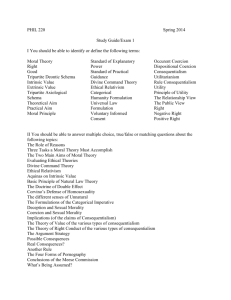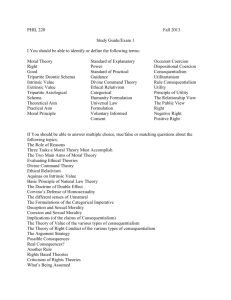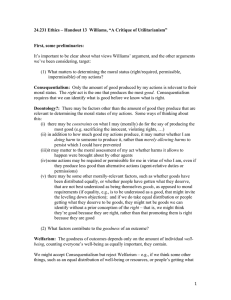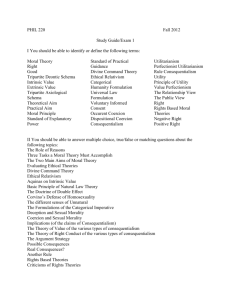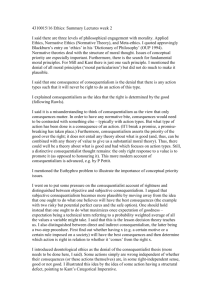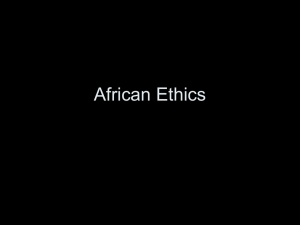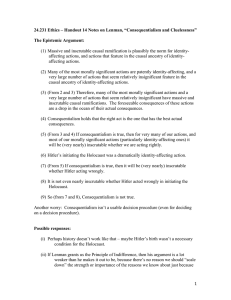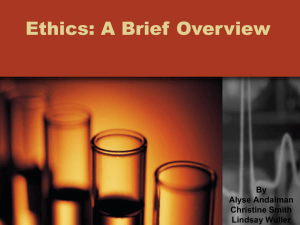Content Exam #2
advertisement
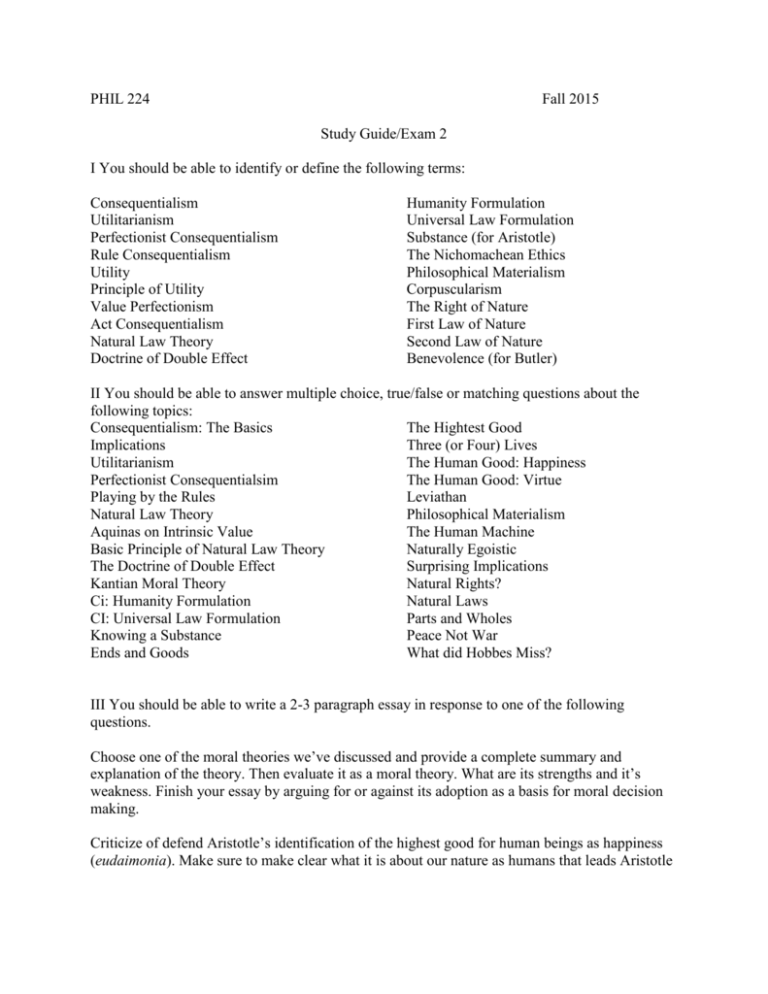
PHIL 224 Fall 2015 Study Guide/Exam 2 I You should be able to identify or define the following terms: Consequentialism Utilitarianism Perfectionist Consequentialism Rule Consequentialism Utility Principle of Utility Value Perfectionism Act Consequentialism Natural Law Theory Doctrine of Double Effect Humanity Formulation Universal Law Formulation Substance (for Aristotle) The Nichomachean Ethics Philosophical Materialism Corpuscularism The Right of Nature First Law of Nature Second Law of Nature Benevolence (for Butler) II You should be able to answer multiple choice, true/false or matching questions about the following topics: Consequentialism: The Basics The Hightest Good Implications Three (or Four) Lives Utilitarianism The Human Good: Happiness Perfectionist Consequentialsim The Human Good: Virtue Playing by the Rules Leviathan Natural Law Theory Philosophical Materialism Aquinas on Intrinsic Value The Human Machine Basic Principle of Natural Law Theory Naturally Egoistic The Doctrine of Double Effect Surprising Implications Kantian Moral Theory Natural Rights? Ci: Humanity Formulation Natural Laws CI: Universal Law Formulation Parts and Wholes Knowing a Substance Peace Not War Ends and Goods What did Hobbes Miss? III You should be able to write a 2-3 paragraph essay in response to one of the following questions. Choose one of the moral theories we’ve discussed and provide a complete summary and explanation of the theory. Then evaluate it as a moral theory. What are its strengths and it’s weakness. Finish your essay by arguing for or against its adoption as a basis for moral decision making. Criticize of defend Aristotle’s identification of the highest good for human beings as happiness (eudaimonia). Make sure to make clear what it is about our nature as humans that leads Aristotle to this conclusion. If he’s right, do you agree with his account of human nature? If he’s wrong, do you think his account of human nature is also wrong? Present either Hobbes’s or Butler’s account of human nature and defend it from the actual or possible criticisms of the other’s account. When presenting the theory you choose, make sure to specify all 4 of the elements of the theory (metaphysics/ontology, crisis, diagnosis, prescription) and explain why they conclude what they do about our natures. Make sure to fully consider the objections posed by the alternative view point before explaining why the one you chose is correct.
